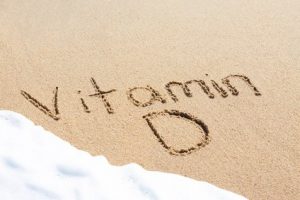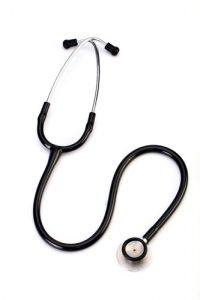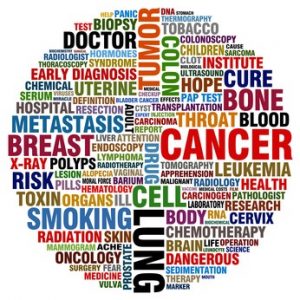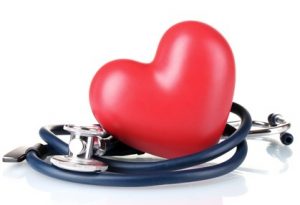Does Vitamin D Reduce Risk Of Heart Disease & Cancer?
Author: Dr. Stephen Chaney
 You have every right to be confused. One day you are told that vitamin D reduces your risk of heart disease and cancer. The next day you are told vitamin D makes has no effect on those diseases. You are told vitamin D is a waste of money. What should you believe? What is the truth about vitamin D?
You have every right to be confused. One day you are told that vitamin D reduces your risk of heart disease and cancer. The next day you are told vitamin D makes has no effect on those diseases. You are told vitamin D is a waste of money. What should you believe? What is the truth about vitamin D?
In mid-November a major clinical study called VITAL was published. It examined the effect of vitamin D and omega-3s on heart disease and cancer risk. Last week I wrote about the omega-3 portion of the study. This week I will cover the vitamin D portion of the study.
Once again, if you rely on the media for your information on supplementation, you are probably confused. Headlines ranged from “Vitamin D Is Ineffective For Preventing Cancer And Heart Disease to “Vitamin D Lowers Odds Of Cancer Death.” What is the truth?
The problem is that reporters aren’t scientists. They don’t know how to interpret clinical studies. What they report is filtered through their personal biases. That is why I take the time to carefully evaluate the clinical studies, so I can provide you with accurate information. Let me sort through the dueling headlines and give you the truth about vitamin D, cancer, and heart disease.
How Was The Study Designed?
 The VITAL study (JE Manson et al, New England Journal of Medicine, DOI: 10.1056/NEJMoa1811403) enrolled 25,871 healthy adults (average age = 67) in the United States. The study participants were 50% female, 50% male, and 20% African American. None of the participants had preexisting cancer or heart disease. The characteristics of the study group were typical of the American population at that age, namely:
The VITAL study (JE Manson et al, New England Journal of Medicine, DOI: 10.1056/NEJMoa1811403) enrolled 25,871 healthy adults (average age = 67) in the United States. The study participants were 50% female, 50% male, and 20% African American. None of the participants had preexisting cancer or heart disease. The characteristics of the study group were typical of the American population at that age, namely:
- The average BMI was 28, which means that most of the participants were significantly overweight.
- 7% of them had diabetes.
Study participants were given questionnaires on enrollment to assess clinical and lifestyle factors including dietary intake. Blood samples were taken from about 65% of the participants to determine 25-hydroxyvitamin D levels (a measure of vitamin D status) at baseline and at the end of the first year. The participants were given either 2,000 IU of vitamin D/day or a placebo and followed for an average of 5.3 years.
There were two important characteristics of the participants in this study that may have influenced the outcome.
- The average 25-hydroxyvitamin D level of participants at the beginning of the study was 31 ng/ml (78 nmol/L). The NIH considers 20-50 ng/ml (50-125 nmol/L) to be the optimal level of 25-hydroxyvitamin D for most physiological functions. This means that study participants started in the middle of the optimal range with respect to vitamin D status.
[Note: The NIH defines the 20-50 ng/ml range as “adequate.” However, I know many of my readers like to aim beyond adequate to reach what they consider to be “optimal.” In the case of vitamin D, that might not be a good idea. The NIH considers anything above 50 ng/ml as associated “with potentially adverse effects.” For that reason, I will refer to the 20-50 ng/ml range as optimal for this article. I wouldn’t want to encourage my readers to be aiming for above 50 ng/ml.]
- Only 12.7% of participants had 25-hydroxyvitamin D levels below 20 ng/ml, which the NIH considers to be inadequate. The results with this group were not statistically different from the study participants with optimal vitamin D status, but it is not clear that there were enough people in this subgroup for a statistically valid comparison with participants starting with an optimal vitamin D status.
- At the end of the first year, 25-hydroxyvitamin D levels in the treatment group increased to 42 ng/ml (105 nmol/L), which is near the upper end of the optimal range. Thus, for most of the participants, the study was evaluating whether there was a benefit of increasing vitamin D status from the middle to the upper end of the optimal range.
- The study allowed subjects to continue taking supplements that contained up to 800 IU of vitamin D. While the authors tried to correct for this statistically, it is a confounding variable.
Does Vitamin D Reduce The Risk Of Cancer?
 You may remember from last week that omega-3s were more effective for reducing heart disease risk than for reducing cancer risk. What is the truth about vitamin D and cancer risk? The results are reversed for vitamin D, so I will discuss cancer first.
You may remember from last week that omega-3s were more effective for reducing heart disease risk than for reducing cancer risk. What is the truth about vitamin D and cancer risk? The results are reversed for vitamin D, so I will discuss cancer first.
The study reported that vitamin D supplementation did not reduce a diagnosis of invasive cancer of any type, breast cancer, prostate cancer, or colon cancer during the 5.3-year time-period of this study. This was the result that was reported in the abstract and was what lazy journalists, who never read past the abstract, reported.
However, the rest of the study was more positive. For example, occurrence of invasive cancer of any type was reduced by:
- 23% in African-Americans.
- 24% in patients with a healthy body weight.
Several previous studies have suggested that vitamin D may be more effective at preventing cancer in people with a healthy body weight, but the mechanism of this effect is currently unknown.
Most previous studies have not included enough African-Americans to determine whether they respond more favorably to vitamin D supplementation. However, African-Americans have a higher risk of cancer, so this finding deserves follow-up.
In addition, when the study looked at deaths from cancer, the results were very positive. For example:
- Cancer deaths during the 5.3-year study period were reduced by 17%.
- The longer vitamin D supplementation was continued the more effective it became at reducing cancer deaths. For example,
- When the authors excluded cancer deaths occurring during the first year of supplementation, vitamin D reduced cancer deaths by 21%.
- When the authors excluded cancer deaths occurring during the first two years of supplementation, vitamin D reduced cancer deaths by 25%.
Finally, no side effects were noted in the vitamin D group.
Does Vitamin D Reduce The Risk Of Heart Disease?
 The VITAL study also looked at the effect of vitamin D on heart disease risk. What is the truth about vitamin D and heart disease? The results from this study were uniformly negative. There was no effect of vitamin D supplementation on all major cardiovascular events combined, heart attack, stroke, or death from heart disease. Does that mean vitamin D has no role in reducing heart disease risk? That’s not clear.
The VITAL study also looked at the effect of vitamin D on heart disease risk. What is the truth about vitamin D and heart disease? The results from this study were uniformly negative. There was no effect of vitamin D supplementation on all major cardiovascular events combined, heart attack, stroke, or death from heart disease. Does that mean vitamin D has no role in reducing heart disease risk? That’s not clear.
The authors had a thought-provoking explanation for why the results were negative for heart disease, but positive for cancer. Remember that the participants in this trial started with a 25-hydroxyvitamin D level of 31 ng/ml and increased it to at least 42 ng/ml with vitamin D supplementation.
The authors stated that previous studies have suggested the 25-hydroxyvitamin D level associated with the lowest risk for heart disease is between 20 and 25 ng/ml. If that is true, most of the participants in this trial were already in the lowest possible risk for heart disease with respect to vitamin D status before the study even started. There would be no reason to expect additional vitamin D to further reduce their risk of heart disease.
In contrast, the authors said that previous studies suggest the 25-hydroxyvitamin D level associated with the lowest risk of cancer deaths is above 30 ng/ml. If that is true, it would explain why vitamin D supplementation in this study was effective at reducing cancer deaths.
However, previous placebo-controlled clinical studies have also been inconclusive with respect to vitamin D and heart disease. My recommendation would be to think of adequate vitamin D status as part of a holistic approach to reducing heart disease – one that includes a heart-healthy diet and a heart-healthy lifestyle – rather than a “magic bullet” that decreases heart disease risk by itself.
As for heart-healthy diets, I discuss the pros and cons of various diets in my book, “Slaying The Food Myths.” As I discuss in my book, the weight of scientific evidence supports primarily plant-based diets that include omega-3s as heart healthy. As an example, the Mediterranean diet is primarily plant-based and is rich in healthy oils like olive oil and omega-3s. It is associated with reduced risk of both heart disease and cancer.
What Is The Truth About Vitamin D?
 There is a lot of confusion around the question of whether vitamin D reduces the risk of cancer. This study strengthened previous observation suggesting that vitamin D supplementation decreases cancer deaths. However, it is also consistent with previous studies that have failed to find an effect of vitamin D on cancer development. How can we understand this apparent discrepancy? The authors provided a logical explanation. They pointed out that:
There is a lot of confusion around the question of whether vitamin D reduces the risk of cancer. This study strengthened previous observation suggesting that vitamin D supplementation decreases cancer deaths. However, it is also consistent with previous studies that have failed to find an effect of vitamin D on cancer development. How can we understand this apparent discrepancy? The authors provided a logical explanation. They pointed out that:
- Cancer development takes 20-30 years while this clinical study lasted only 5.3 years. That means that vitamin D supplementation only occurred at the tail end of the cancer development process. In fact, the cancer was already there in most of the patients in the study who developed cancer. It just had not been diagnosed yet. In the words of the authors: “Given the long latency for cancer development, extended follow-up is necessary to fully ascertain potential effects [of vitamin D supplementation].”
- In contrast, none of the patients had been diagnosed with cancer when they entered the trial. That means that the patients were diagnosed with cancer during the 5.3-year study period. They were receiving extra vitamin D during the entire period of cancer treatment. Thus, the effect of vitamin D on reducing cancer deaths was easier to detect.
What Does This Study Mean For You?
 Vitamin D Is Likely To Decrease Your Risk Of Dying From Cancer: When you combine the results of this study with what we already know about vitamin D and cancer, the results are clear. Vitamin D appears to reduce your risk of dying from cancer. More importantly, the longer you have been supplementing with vitamin D, the greater your risk reduction is likely to be.
Vitamin D Is Likely To Decrease Your Risk Of Dying From Cancer: When you combine the results of this study with what we already know about vitamin D and cancer, the results are clear. Vitamin D appears to reduce your risk of dying from cancer. More importantly, the longer you have been supplementing with vitamin D, the greater your risk reduction is likely to be.
Vitamin D May Decrease Your Risk Of Developing Cancer: Association studies suggest that optimal vitamin D status is associated with decreased cancer risk, especially colon cancer risk. However, the long time for cancer development means that we may never be able to prove this effect through double-blind, placebo-controlled clinical trials.
Holistic Is Best: When you combine the VITAL study results with what we already know about vitamin D and heart disease, it appears that supplementing with vitamin D is unlikely to reduce your risk of developing heart disease unless you are vitamin D deficient. However, a holistic approach that starts with a healthy, primarily plant-based diet and makes sure your vitamin D status is adequate is likely to be effective.
The same is likely true for cancer. While the latest study suggests that vitamin D supplementation reduces your risk of dying from cancer, those vitamin D supplements are likely to be even more effective if you also adopt a healthy diet and lifestyle.
How Much Vitamin D Do You Need? The optimal dose of vitamin D is likely to be different for each of us. One of the things we have learned in recent years is that there are significant differences in the efficiency with which we convert vitamin D from diet and/or sun exposure into the active form of vitamin D in our cells. Fortunately, the blood test for 25-hydroxyvitamin D is readily available and is widely considered to be an excellent measure of our vitamin D status.
I recommend that you have your blood level of 25-hydroxyvitamin D tested on an annual basis. Based on the best currently available data, I recommend you aim for >20 ng/ml (50 nmol/L) if you wish to minimize your risk of heart disease and >30 ng/ml (75 nmol/L) if you wish to minimize your risk of cancer. If you can achieve those levels through diet and a multivitamin supplement, that is great. If not, I would recommend adding a vitamin D supplement until those levels are achieved.
Finally, you shouldn’t think of vitamin D as a magic bullet. If you are a couch potato and eat sodas and junk food, don’t expect vitamin D to protect you from cancer and heart disease. You should think of maintaining adequate 25-hydroxyvitamin D levels as just one component of a holistic approach to healthy, disease-free living.
The Bottom Line
There is a lot of confusion around the question of whether vitamin D reduces the risk of cancer and heart disease. A major clinical study has just been published that sheds light on these important questions. It reported:
- Vitamin D did not decrease the risk of developing cancer during the 5.3-year study duration. The authors pointed out that cancer takes 20-30 years to develop, which means their study was probably too short to detect an effect of vitamin D on the risk of developing cancer.
- Vitamin D did decrease the risk of dying from cancer, and the longer people were supplementing with vitamin D the bigger the protective effect of vitamin D was.
- Vitamin D did not decrease the risk of heart disease. However, most study participants had a level of 25-hydroxyvitamin D that was optimal for reducing the risk of heart disease at the beginning of the study. There was no reason to expect that extra vitamin D would provide additional benefit.
- With respect to both cancer and heart disease the best advice is to:
- Get your 25-hydroxyvitamin D levels tested on an annual basis and supplement, if necessary, to keep your 25-hydroxyvitamin D levels in what the NIH considers to be an adequate range (20-50 ng/ml).
- We do not have good dose response data for the beneficial effects of vitamin D on heart disease and cancer. However, according to this article, previous studies suggest you may want to am for 25-hydroxyvitamin D levels above 20 ng/ml to reduce the risk of heart disease and above 30 ng/ml to reduce your risk of cancer.
- Consider vitamin D as just one component of a holistic approach to healthy, disease-free living.
For more details about the interpretation of these studies and what they mean for you, read the article above.
These statements have not been evaluated by the Food and Drug Administration. This information is not intended to diagnose, treat, cure or prevent any disease.
